Dutch immigrants Theo and Lisette Breg started the company Sítio Kolibri in 1989 in the city of Holambra, Brazil. Today, their daughters Gabriela and Regina run the company together with their husbands. Anthura talks with Gabriela and Regina about the company, its developments, and the future.
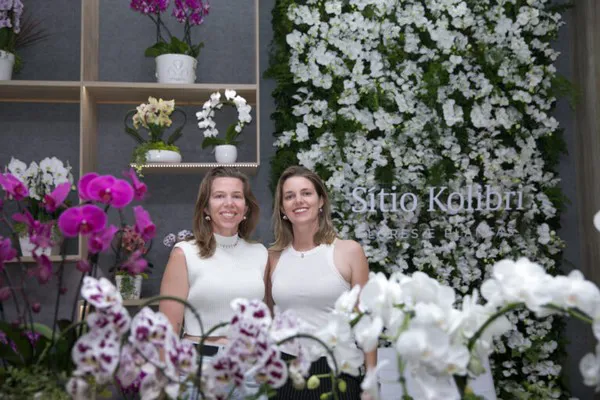
Gabriela and Regina Breg.
Can you tell us something about the company’s history?
Gabriela:
We are the daughters of Dutch Immigrants who came to Brazil at the end of 1981. Our father, Theo Breg, came as a consultant, but in time he became a partner of a Kalanchoe grower. After a few years, my parents decided to buy a place and start their own business. For four years they produced African violets and some Kalanchoe. The production of African violets was replaced by Anthuriums, varieties that Sítio Kolibri imported from Anthura. Around 1994 they had the chance to start growing Phalaenopsis. In 2012 the company decided to focus completely on Phalaenopsis.
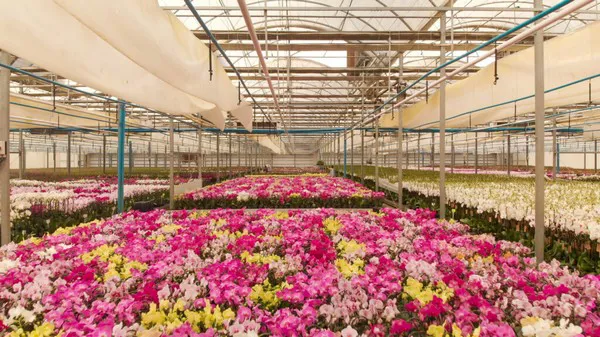
How did you and your sister become involved in the company?
Regina:
When we moved to Brazil in 1989, it was just the four of us in Brazil, no family around, my sister and I always ended up in our parents’ company, immersed in the company’s life. Gabriela went to university and after she graduated, she decided to come back to Holambra and work in the family business.
It was a good decision. Since 2008, Gabriela and I have been partners of our parents, and in 2013 my husband Mattheus joined us. Gabriela’s husband, Cauê, joined the company in 2022.
Gabriela
Our parents are no longer actively involved in the company. Regina, Mattheus, Cauê, and I are working together and making sure that Sítio Kolibri continues to develop and grow.
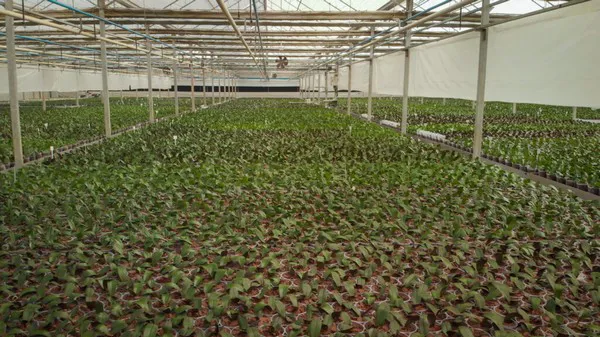
Can you tell us something about the current structure of your company and the developments and investments of recent years?
Regina:
Today, Sítio Kolibri has two production sites. The first is for the growing phase of Phalaenopsis and therefore contains a heating system developed for this part of the cultivation, and the second is a flowering greenhouse, with a cooling system for the process.
In the last few years, the company has invested in different technologies so we can grow more high-quality plants in a faster cycle.
In 2019 our company acquired a new wood chip boiler that suited our production process. We bought it with our own capital, and since July 2020 it has been heating a greenhouse area of 26,000 m². To improve the quality of the heat supply, and to lower our electricity consumption, we changed all the heating pumps and renovated all the heating lines inside the greenhouse.
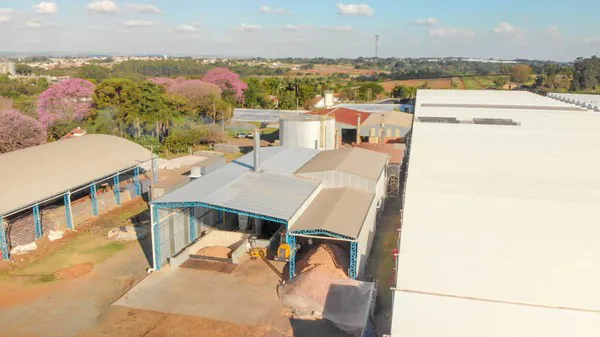
Gabriela:
At the end of 2020, the company started building the last cold greenhouse so we can make full use of our heated area. The new area, of 5,500 m², is built to minimize damage in the event of high winds or hailstorms. It has a pad and fan system, as do all the other greenhouses, for optimum climate control, and Güntner air coolers that ensure a constant temperature of around 22 degree Celsius throughout the year. Double shading allows good insolation control of the greenhouse. All our cold greenhouses are fitted with these systems.
In the cold greenhouses, we installed draining floors which allows us to have a drier climate under the tables, decreasing the incidence of certain diseases. In the same area, the tables will be transported through the whole production area (around 200 meters) in transport lines. This company also provides the aluminum containers we use. New air-cooled machines were acquired to ensure cooling during the hotter months of the year.
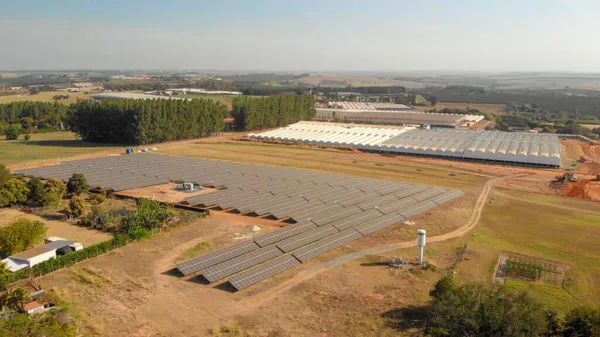
To complete the investment plans of 2021, Sitio Kolibri acquired solar panels to provide electrical power to all the greenhouses and equipment. It started functioning in June 2022 and we are already seeing good results, so much so that we probably won’t need to use electricity from the energy company.
Why did you choose to grow Phalaenopsis?
Regina:
Jacques van der Weijden worked in Brazil for a while and then went back to Holland but, before he left, he suggested that Phalaenopsis would be the pot plant of the future. Our father, Theo, decided to try working with this new plant. Phalaenopsis was already being produced in Brazil, but on a very small scale, especially in cities with colder climates. In those days production was not year-round, so my father invested in cooling systems in the greenhouses so he could sell the plants all year. It was a big success.
Gabriela:
We have had our ups and downs, and with the downs in particular we learned a lot about this plant. We also specialized in this cultivation and this product group because we really like challenges.
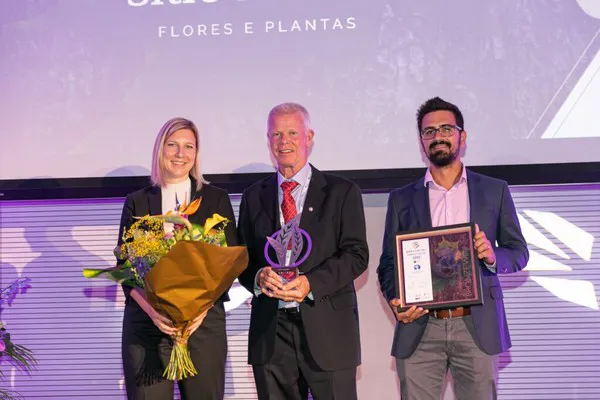
Last June you were nominated for the sustainability award of the International Grower of the Year and came third. Can you tell us more about this?
Regina:
Last year my father said to Gabriela: “There is still time to enter for the sustainability award of the International Grower of the Year, what do you think?” He sent the request for application to the organisation concerned in order to participate, and we decided to give it a go. We have worked very hard during these past years to get to where we are. When we filled out the forms, we concluded that we had already fulfilled most of the requirements regarding sustainability.
What could Dutch companies learn from you?
Gabriela:
In Brazil, we don’t have a good range of technologies for flower growers. We have to think a lot outside the box and find ways to manage and implement new technologies. Also, inflation is a daily reality for us, so we always have to be really focused on managing our money and not depending on banks for big investments.
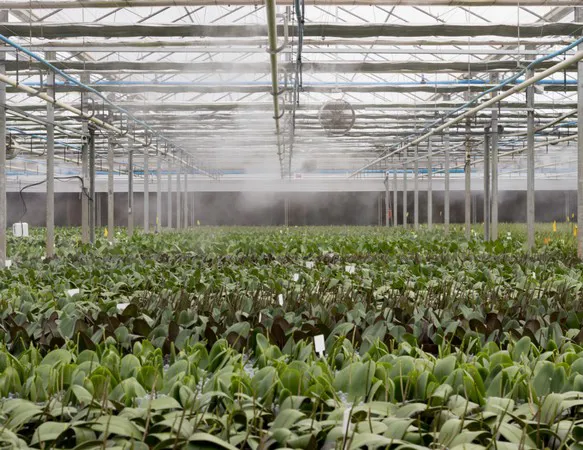
What can you learn from the Netherlands?
Gabriela:
Visiting the Netherlands once a year, at least, is one of our objectives. We try to visit different growers as well as Phalaenopsis breeders. In the Netherlands, there are a lot of highly specialized companies in developing plant cultivation technologies, something that we don’t have in Brazil. For us it is very important to see how these technologies work, and which of them can be used, or at least adapted, to our cultivation in Brazil.
How do you see the future of your company?
Regina:
For the future we plan to concentrate on cultivating Phalaenopsis on just one production site. Therefore, we have a long term plan (20 years) to expand the greenhouses at Sítio Garça Mirim from 21,000 m² to 80,000 m². We will keep the greenhouses at Kolibri for an alternative product to Phalaenopsis. This expansion plan is expensive, so it calls for very careful financial planning and a well-established work plan.
For more information: Anthura
Anthura
www.anthura.nl
